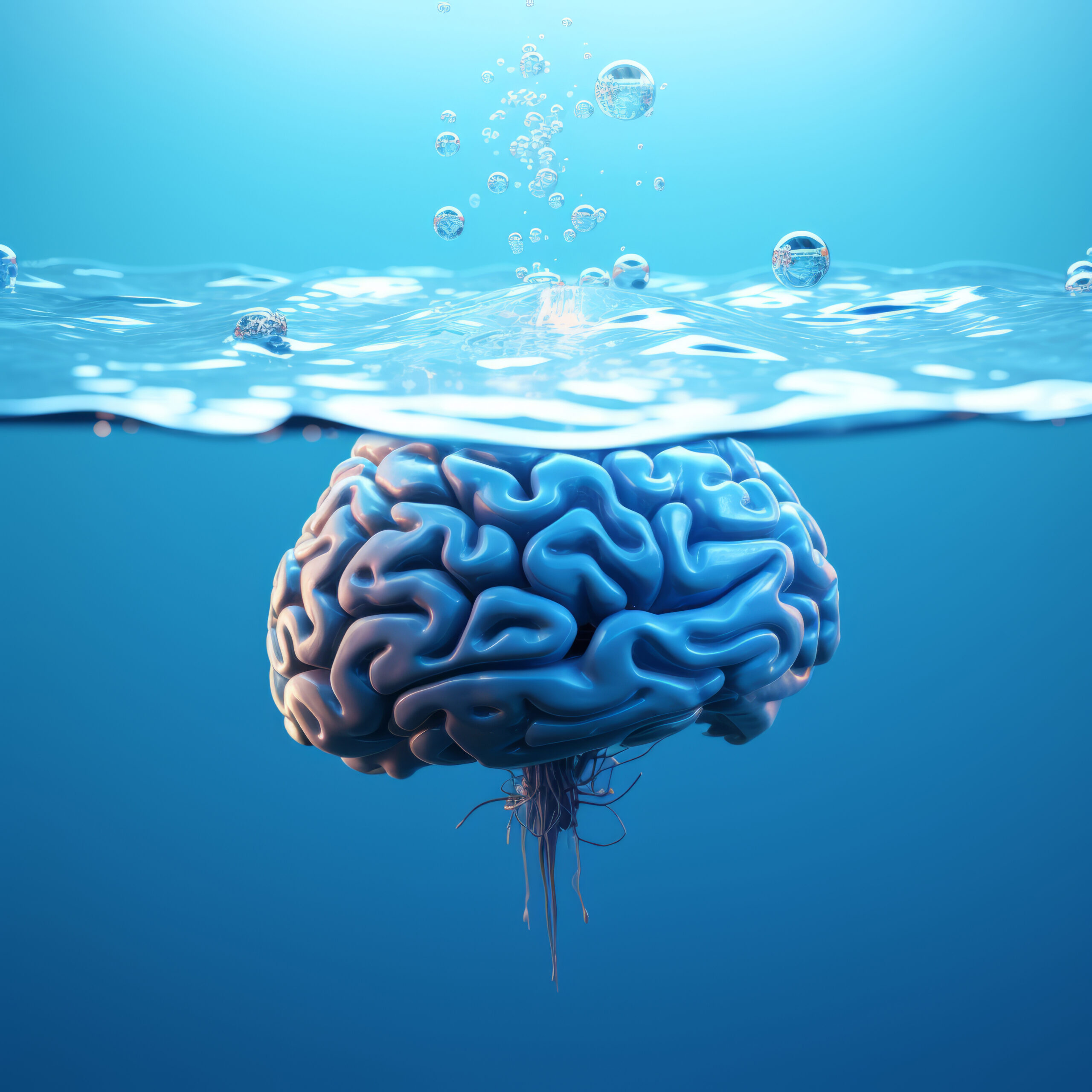Water is fundamental to life, making up about 60% of the human body and playing a crucial role in almost every physiological process. While most people understand the importance of hydration for physical health, its impact on cognitive function is often overlooked. The brain, which is about 75% water, is highly sensitive to changes in hydration levels. Even mild dehydration can impair cognitive abilities such as concentration, memory, and mood. In this article, we’ll explore the link between hydration and cognitive function, discussing how staying properly hydrated can support mental clarity, focus, and overall brain health.
Why Hydration Matters for the Brain
The brain is one of the most water-demanding organs in the body. Water is essential for maintaining brain structure, supporting neuronal activity, and facilitating the flow of nutrients and the removal of waste products. It also plays a key role in neurotransmission, the process by which neurons communicate with each other. When hydration levels drop, the efficiency of these processes can be compromised, leading to a range of cognitive deficits.
Cognitive Impairments Linked to Dehydration
Research has shown that even mild dehydration—defined as a loss of 1-2% of body water—can significantly impair cognitive performance. Some of the most common cognitive impairments associated with dehydration include:
1. Decreased Attention and Concentration
Dehydration can make it more difficult to stay focused and attentive. Studies have found that individuals who are dehydrated have a harder time performing tasks that require sustained attention, and they are more prone to distractions. This can affect work productivity, learning, and daily activities that require mental sharpness.
2. Memory Problems
Memory is another cognitive function that can suffer from inadequate hydration. Both short-term memory (such as remembering a phone number) and long-term memory (such as recalling past events) can be negatively affected. In one study, participants who were mildly dehydrated showed poorer performance on memory tasks compared to those who were well-hydrated.
3. Slower Cognitive Processing
The speed at which the brain processes information can slow down when the body is dehydrated. This means that tasks such as problem-solving, decision-making, and even reading comprehension can take longer and feel more difficult. Dehydration can also impair motor coordination, making complex tasks that require both physical and mental effort more challenging.
4. Mood and Emotional Stability
Hydration levels can also influence mood and emotional stability. Dehydration has been linked to increased feelings of irritability, anxiety, and fatigue. This is because water is involved in the production and regulation of neurotransmitters that affect mood, such as serotonin and dopamine. When dehydration disrupts these processes, it can lead to mood swings and a decline in overall mental wellbeing.
The Science Behind Hydration and Cognitive Function
The connection between hydration and cognitive function is supported by a growing body of scientific research. For example, a study published in the journal Frontiers in Human Neuroscience found that dehydration can alter the brain’s structure and function, particularly in regions involved in complex cognitive tasks. Functional MRI scans of dehydrated individuals showed reduced brain activity in these areas, which was associated with poorer performance on cognitive tests.
Another study, published in The Journal of Nutrition, examined the effects of dehydration on mood and cognitive performance in young women. The researchers found that even mild dehydration caused significant impairments in cognitive tasks related to attention, executive function, and mood regulation. These effects were observed both at rest and during exercise, highlighting the importance of staying hydrated throughout the day.
Additionally, research conducted by the European Journal of Clinical Nutrition demonstrated that rehydration could quickly restore cognitive function in individuals who were previously dehydrated. This suggests that maintaining adequate hydration is key to sustaining optimal cognitive performance.
How Much Water Do You Need for Optimal Cognitive Function?
The amount of water needed for optimal cognitive function can vary depending on factors such as age, gender, physical activity level, and climate. However, general guidelines recommend that men should aim for about 3.7 litres (or about 13 cups) of total water per day, and women should aim for about 2.7 litres (or about 9 cups). This includes water from all beverages and foods consumed throughout the day.
It’s also important to pay attention to your body’s signals of thirst and to drink water regularly, rather than waiting until you feel thirsty. By the time you feel thirsty, your body may already be mildly dehydrated.
Tips for Staying Hydrated to Support Cognitive Function
1. Start Your Day with Water: Drinking a glass of water first thing in the morning can help kickstart your hydration and support brain function throughout the day.
2. Carry a Water Bottle: Keeping a water bottle with you at all times makes it easier to stay hydrated, whether you’re at work, school, or on the go.
3. Set Hydration Reminders: Use alarms or apps to remind yourself to drink water regularly, especially if you tend to forget during busy days.
4. Eat Hydrating Foods: Incorporate water-rich foods like fruits, vegetables, and soups into your diet. These can contribute to your daily hydration needs.
5. Monitor Your Hydration: Pay attention to the colour of your urine—it should be light yellow or clear. Darker urine is a sign that you need to drink more water.
6. Adjust for Activity Levels: If you’re exercising or spending time in a hot environment, increase your water intake to compensate for fluid loss through sweat.
Conclusion
Staying hydrated is not only crucial for physical health but also plays a vital role in maintaining cognitive function. From improving concentration and memory to stabilising mood and enhancing mental clarity, adequate hydration is key to keeping your brain sharp and your mind healthy. By making hydration a priority in your daily routine, you can support optimal cognitive performance and overall wellbeing. Remember, a well-hydrated brain is a healthier, more effective brain.





